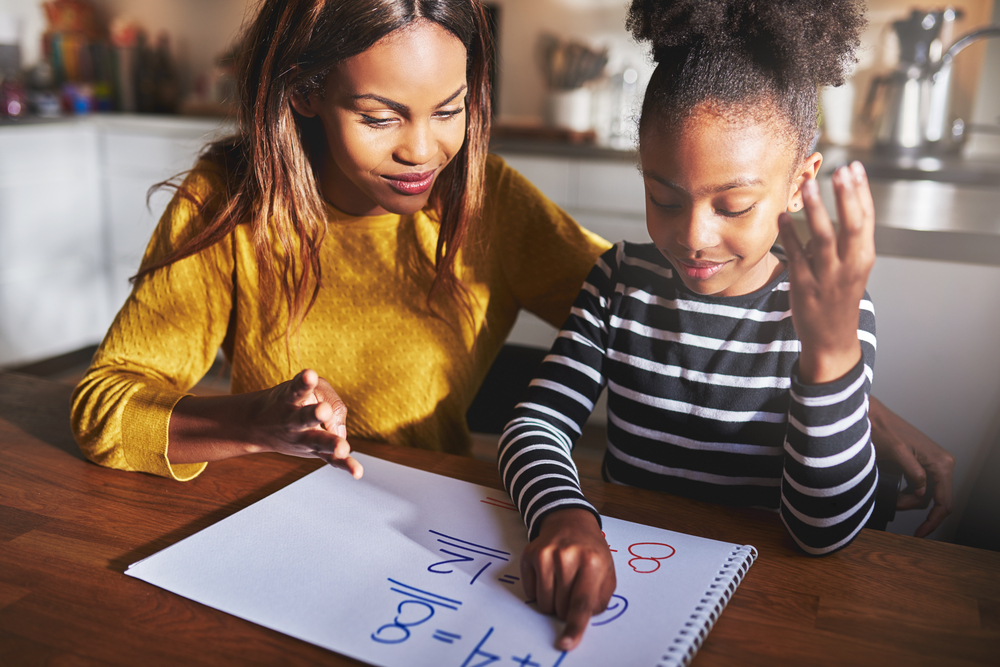The transition to staying at home — and the resulting homeschooling — has presented a learning curve for both parents and their children. Kids are adjusting to remote learning, but discovering that it can come with added layers of stress and confusion, and can come without the same social components they know and love. Many parents are feeling like they have to do it all as they navigate working and teaching from home — toggling between their identities of mom or dad, employee, and now, teacher, too.
We know children are resilient. We know parents are rising up to the challenges of these times, as they stretch boundaries and schedules in an attempt to make, work, school, and everything from home function as seamlessly as possible. But none of this is to say each family member’s mental health isn’t suffering — in fact, they are feeling more stressed and less productive than they were in our pre-pandemic world. Thrive Global research shows that 78% of parents feel that COVID-19 has had a significant negative impact on their mental well-being, and almost 90% are experiencing challenges balancing work and family responsibilities.
“Parents are struggling with self doubt when it comes to handling behavioral issues and managing homeschool responsibilities,” Kim Hart writes for Axios. Surveys also show that children are dealing with anxiety and potential long-lasting psychological distress as a result of lockdowns, social restrictions, and school closures due to COVID-19. Navigating the uncertainties of these difficult times has become part of daily life, and it’s vital that parents make self-compassion part of their routines, too. “Nobody is going to be completely keeping up, that’s a very tall order under these circumstances,” Elizabeth Englander, Ph.D., the director of the Massachusetts Aggression Reduction Center at Bridgewater State University, tells Axios. Finding some forgiveness, rather than beating yourself up because you allowed too much screen time or overreacted in a stressful situation is key to safeguarding your whole family’s well-being during these challenging times. These Microsteps will help you reframe, reset, and set rules that everyone can agree on.
Schedule “do good” time with your children.
Feeling helpless about the pandemic can exacerbate stress, so help children assert control by encouraging them to make signs or masks or take part in another effort to do something good to help others.
Each day, practice a calming exercise with your kids — before they need it.
Get out in front of stress and help kids “reset” with a routine, like going outside, reading a book, or sitting on your lap. If it helps, set regular reminders for yourself throughout the day.
Plan one activity a day that builds your kids’ social and coping skills.
Even having one meal a day with family helps kids build social skills. Keeping up with old routines can also be reassuring and help them cope.
Carve out a daily movement break for your children.
Movement and walking — outdoors especially, if possible for you — is the best thing for boosting their mental health and preventing behavioral problems. Even a few minutes of running, jumping, or stretching will make a difference.
When you feel like you’re failing at homeschooling, take a moment to reframe.
You are being asked to go above and beyond right now. Instead of judging yourself by impossible standards, focus on how you can help your kids grow even if it isn’t part of their official lesson plan. It can be one meaningful conversation, or a discussion about their feelings, or anything that engages them.
Set screen time rules with your kids and post them where everyone can see them.
Being open with children about a daily screen time schedule will create expectations and bring more structure to the day.
Follow us here and subscribe here for all the latest news on how you can keep Thriving.
Stay up to date or catch-up on all our podcasts with Arianna Huffington here.


